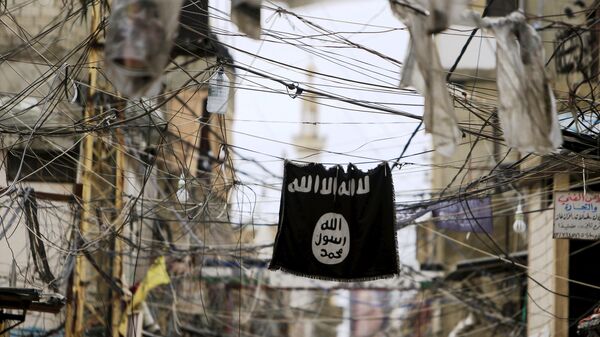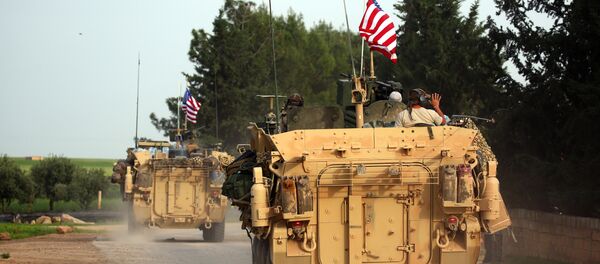In an interview with The Guardian, UN World Food Program head David Beasley has claimed that Daesh* plans to capitalize on a food crisis in a bid to destabilize sub-Saharan Africa and trigger more migrant turmoil in Europe.
Commenting on the issue, French political analyst Leslie Varenne told Sputnik France that she was amazed by the fact that Beasley's words "exactly echoed the 2017 remarks by [US Chairman of the Joint Chiefs of Staff Joseph] Dunford and US Senator McCain."
READ MORE: US Strikes Daesh in Libya, Killing Several Terrorists — US Africa Command
"The two claimed that Africa will soon become the backbone of Daesh, something that was said in a bid to cause panic," Varenne said.
At the same time, she described David Beasley as a man who "does not have much experience in international relations."
"In general, when looking through his remarks [on a possible new refugees crisis in Europe], one cannot but note that they are at least strange if not delusional," Varenne pointed.
She stressed that she is keeping an eye on the movement of militants from Syria and Iraq in northern Africa's Sahel region and that none of her informers confirmed the arrival of Daesh terrorists in the area.
READ MORE: Al-Qaeda Expands in Africa While World Targets Daesh in Middle East
"Official figures fluctuate between 500 and 1000 jihadists. We are over-militarizing the region as if we've decided to take a jackhammer to kill a fly. So the question arises whether they are trying to find a pretext to resolve a problem by military means rather than economic ones and whether they are trying to justify the foreign military presence in the region," she pointed out.
Varenne underlined that the unnecessary militarization of the region "does not correspond to the level of real danger which is not about terrorism, but economic backwardness, a food crisis and political instability."
She explained that residents of Sahel countries are seriously concerned about the violation of sovereignty of their countries, which prompts them "to suspiciously look at all these foreign soldiers in their land."
READ MORE: Great Power Competition in Middle East Hinders Anti-Daesh Campaign — US General
According to her, these foreign armies provide support for political regimes that the local population would like to change; also, it creates more tension and prods young people in Sahel countries to join armed groups or flee.
"This is a vicious circle, which is currently in place in Afghanistan. There the presidents of the countries, with the support of foreign armies, are hunting terrorists, and this same occupation army is pushing locals into the arms of armed [terrorist] groups," Varenne concluded.
"My comment to the Europeans is that if you think you had a problem resulting from a nation of 20 million people like Syria because of destabilization and conflict resulting in migration, wait until the greater Sahel region of 500 million people is further destabilized. And this is where the European community and international community has got to wake up," Beasley said.
In March 2017, a report by the private intelligence firm Soufan Group said that the terrorist group al-Qaeda* in the Maghreb is quietly expanding in North Africa by merging with local terrorist groups at a time when global attention is focused on defeating Daesh in the Middle East.
The views and opinions expressed by Leslie Varenne are those of the analyst and do not necessarily reflect those of Sputnik.
*Daesh (ISIL/ISIS/Islamic State), a terrorist group banned in Russia
*Al-Qaeda, a terrorist group banned in Russia




